Yucatan News: Cheese and Safety
Italian Cheese to be Produced in Yucatan
The State of Yucatan has just signed an agreement with Italy’s Latteria del Molise to produce Italian cheese in the eastern portion of Yucatan, near the towns of Sucila, Espita, and Tizimin. The plant is set to open in 2017. Yucatan was chosen for this new cheese factory because of its geographical location, logistics infrastructure, weather conditions and government support for the project. Prior to its opening, Yucateco employees will go to Italy for training and Italian technical assistants will come back with them. Yucatan has already given grants to small dairy farmers so they can improve the amount and quality of their milk production. The State Fair is coming up in just a few weeks, so do be sure to take a few minutes out to go when it opens and see the cattle being raised in Yucatan today. They are amazing animals and everyone should be proud of Yucatan’s cattle producers. And now, we can thank them, Italy and the Yucatan government for making fresh Italian cheese available soon in the Yucatan!
Success By Design – Another Project with Italy
As if Italian cheese was not wonderful enough, the State of Yucatan and Milan Polytechnic are going to work together to establish a Design Center of Yucatan. Here, students will learn concepts of design that they can apply anything from culture to farming and fashion. This goes a long way to establishing the brand of Yucatan state, as well, as a place that has everything. Yucatan has important cultural and industrial sectors that have been recognized by Design professors at Milan Polytechnic and they have expressed interest in starting work on future proposals. The establishment of the Design Center of Yucatan is going to be an interesting project to watch in the very near future.
Over 3,000 Unregistered Churches
In Mexico, churches must register as Religious Associations (AR) with the Ministry of the Interior so they will be exempt from Tax Administration Services (SAT) taxes. It has recently been found that there are more than 3,000 unregistered churches, now being termed pirate churches. SAT is currently cracking down on 157 of these churches in Yucatan and following the trails of unreported donations to these churches, as well as the salaries of their employees. This is not an effort to collect back taxes, but an effort to make certain that all taxpayers are properly covered for benefits. Ministers must also register with AR and with SAT because there are limits on how much they can earn without being taxed. Any earnings over that limit will be taxed as if they are a regular taxpayer. This is important because many of these employees will reach retirement age or have a need for benefits even earlier only to find that they have none because the church they worked for was unregistered either as a church or as a business. Most of these organizations mean well, but they must follow the local laws of the countries in which they are operating.
A Cenote With a Kiddie Pool, Ghosts, and a Bike Trail
A group of ejidatarios have founded the Cooperativa Circuitos Ecoturisticos de Lepan, or the Ruta Lepan, in Lepan in Yucatan’s Municipality of Tecoh. There is something at that old henequen plantation for everyone, even for the little children. They have an old henequen factory, a few ghosts, a five kilometer bike trail, a tricycle tour on a paved path, the Temple of Antonio church, and the huge, crystal clear Cenote Ch’a Chaac. The main cenote is from one to six meters deep with a kiddie pool on the side. The state’s investment in ecotourism is making great strides in both preservation of nature and culture, and contributing to the pride that Yucatecans grow up with in their heritage.
Merida Tops New Quarterly Perceptions of Security
How safe people feel in their communities is an important factor in quality of life and economic growth for any city, so the National Institute of Statistics and Geography’s National Survey of Urban Public Safety (INEGI) conducts a quarterly survey of the residents of 48 cities in Mexico. Merida consistently appears as the city with the lowest perception of insecurity at only 33.2%. Tepic, Nayarit and Campeche, Campeche asssssssssscame in at 35.7%. As we go up the scale of feelings of insecurity, 41.9% of the citizens of Puerto Vallarta, Jalisco, feel insecure, as do 42% of the citizens of Durango, Durango. On the other end of the scale, the cities with the highest percentages of citizens who feel insecure include: Ecatepec, State of Mexico, 95.3%, eastern part of Mexico City, 94.2%, Coatzacolcos, Veracruz, 93.4%, Acapulco Guerrero, 93.3% and Villahermosa, Tabasco, 90.7%. Those of us who live in Yucatan cannot even imagine a 95.3% feeling of insecurity and, for that, we are all deeply appreciative of the culture in our adopted state and of our excellent police departments at every level.
Merida Is Becoming Safer Than Ever
In a joint effort between the State of Yucatan and the Municipality of Merida, surveillance cameras are to be installed to monitor parks throughout the city. There are already surveillance cameras in downtown parks, but now there will be surveillance cameras in parks in local neighborhoods. There are currently 10 parks being rehabilitated and four new neighborhood parks being built. These will be the first to get surveillance cameras. These cameras will come along with other improvements such as multipurpose buildings with bleachers and a roof, a skating area, exercise machines, walking trails, jogging tracks and new lighting. The plan now is that the parks will be cleaned every two days and repainted every six months.
Migrants Stimulate Economy and Benefit Their Children
Approximately 180,000 migrants working in the United States sent home remittances of over 1.3 billion pesos during the first half of 2016, which is a growth of 4.3% over the same time last year. This money fueled domestic consumption, prevented the growth of inflation, and helped boost the opening of micro businesses. In return, on a trip to visit Yucateco migrants in San Francisco, the Mayor of Merida announced that the children of migrants residing in Merida will, beginning in 2017, receive support from the Municipal Housing Plan, productive projects for families of migrants and Micromer credits to help them grow their own small businesses. They will also benefit from cultural exchanges with Clubes de Yucatecos de California. Since more than 100,000 Yucatecos currently live in Los Angeles and San Francisco, California, it is important for both the migrants and their children to maintain contact with family and with their culture. The children of the migrants can also function as ambassadors for the 2017 celebrations of Merida’s being chosen as the Capital of Culture and invite their American friends to come and join in. It is amazing to see what can happen when people work together. The migrants do so much to help the economy at home, and now Merida is able to provide an excellent array of benefits for the children of those migrants. They have given up a normal family life, but the reward is the gratitude of their state and the benefits to their families.
New Beach Erosion Projects Beginning Soon
The State of Yucatan, along with UNAM, is embarking on an ambitious project to control beach erosion in Sisal, and from Progreso to Telchac Puerto. Projects will include geotubes, dune protecting plants, and various structures designed to hold sand in place. Experts are going to be employed to make Yucatan’s beach restoration a long-term project that helps to fight a global beach erosion problem. These projects will have a direct impact on tourism, the economy, and the lives of the people who live along Yucatan’s coast.
Dual Citizenship for Children of Mexican Migrants
There are currently 257,000 children who are American citizens but who have returned to Mexico with their Mexican parents. This leaves them without benefits in Mexico. Prior to now, the process to obtain dual citizenship has been complicated and expensive. However, that has just changed. The cost has dropped from 6,000 pesos to only 310 pesos. The only place this process can take place is at the Civil Registry. This streamlined process has the potential to affect at least 5,000 children in Yucatan. This is excellent news and will make life so much easier for these children and their families.
Poverty Dropping in Yucatan
Over the past four years, new programs and strategies by the state government of Yucatan have resulted in a decrease in poverty from 25.4% to 18.7%. This means that approximately 128,000 Yucatecos no longer live in poverty. This year Yucatan is among the top five states in all of Mexico with the largest reduction in poverty. We can see the improvements in healthcare all around us, but changes in education take a little time and may not be so visible. The statistics are in and not only are dropout rates falling, but enrollment in higher education grew more than 22% in just four years. Yucatan’s young people are making a name for themselves, worldwide, as some of the brightest and best in every field. This will lead to an even greater drop in poverty levels in the future.






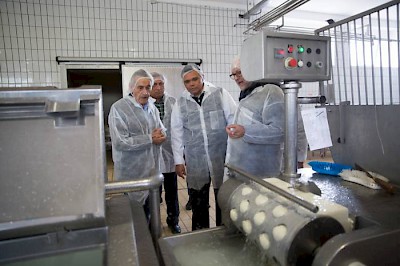
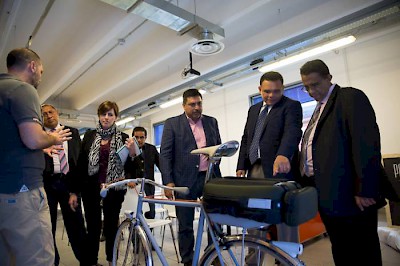
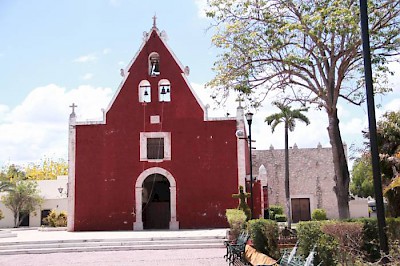
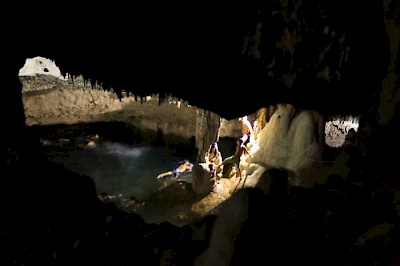
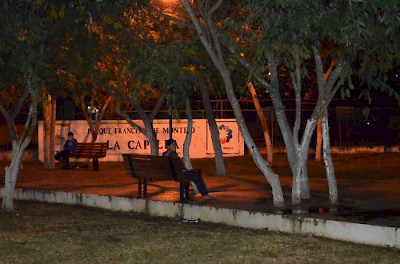
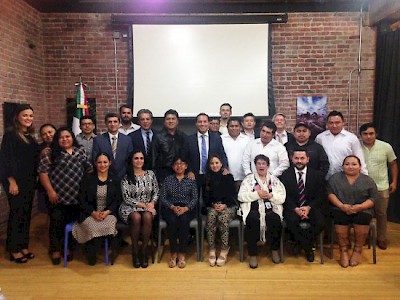
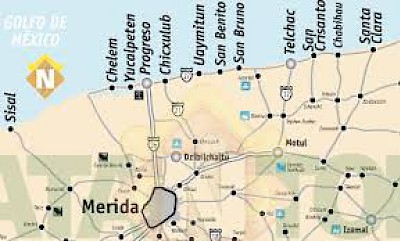

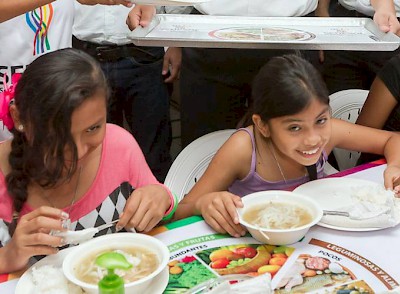

Comments
James Gunn 9 years ago
The Encuesta Intercensal of 2015 gives the total number of foreign born residents in Mexico as 1,007,062. But, interestingly, about 43% of those are Mexican citizens. The 57% who are not Mexican citizens total 574,025. An article in the Guardian on September 20, 2016 entitled "Plan aims to save US born children in Mexico from legal limbo" puts the total number of Mexicans with foreign citizenship at 550,000. The median age, according to census records, is in the mid-teens. That means a very large proportion of these foreign-born Mexican immigrants are children.
As an aside: According to the Encuesta of 2015, the average life span in Yucatan is 75.9 years, higher than the average for Mexico and almost as high as in the USA (78.8 in 2012). Yucatan is both safe and healthy.
Reply
(0 to 1 comments)